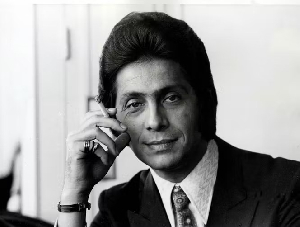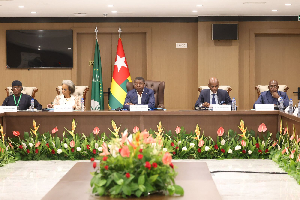The global foreign exchange market has grown over 30% in 4 years from USD 5 trillion daily volume in 2015 to USD 6.6 trillion in 2019. The participation of retail investors in the forex market has grown significantly over the last decade to an estimated 4-5% of the total volume.
It has been estimated that currently there are over 10 million active online retail forex traders in the world and nearly 1.8 million traders are from Africa. This means that Africa accounts for nearly 15-20% of the total number of forex traders.
Nigeria, South Africa, and Kenya have the highest number of forex traders in Africa, while Ghana has an estimated 35,000 active traders currently.
West Africa has a significantly higher number of forex & crypto traders compared to stock traders in the equity market.
The main reasons seen for this are the lower capital requirements by forex brokers, very high leverage, and huge promotion by CFD and crypto brokers on social media.
Chances are that you may have seen ads by online forex and crypto trading apps on social media, but none of these platforms are regulated in Ghana.
Some countries in Africa have a setup regulatory framework to monitor & create regulatory oversight on brokerages through policies that govern the retail trading activities in the forex market.
There are many South African forex brokers that have applied or been approved by FSCA under their new ODP regime for offering forex investment & OTC derivatives in South Africa, currently there are around 60 licensees, which is the highest number of regulated FX brokers in any single country in Africa; while Kenya's CMA has issued license to four brokers that offer online forex trading & CFDs. But Ghana still doesn’t have a regulation in place for these financial instruments & there are no locally regulated forex trading platforms.
Despite the lack of regulation, Ghanaian traders are still investing millions of US Dollars yearly with foreign domiciled brokerages in Europe & in offshore locations to trade in the forex market.
Traders from Ghana are registering themselves with international brokers to conduct trades, and many foreign brokers have gained business from this, so these platforms are increasingly promoting their services to West African traders despite not being regulated locally.
To control this & protect investors, the policy people in Ghana had proposed in 2020 to bring about a regulatory framework for forex trading & its players. The Securities and Exchange Commission is working with the Bank of Ghana to introduce regulators to govern the market.
State of forex trading regulations in Ghana
As of this moment, there are no legalised laws or regulations that govern retail Forex trading in Ghana. However, in 2020 there was news that the SEC had been granted permission by the Bank of Ghana to create a framework, review and grant licenses to forex brokers wanting to establish themselves in Ghana. And the regulatory framework is expected to be ready and implemented sometime this year.
The SEC of Ghana is said to have invited 20-30 experienced traders from the Ghanaian trader’s community in 2020 for their opinion to help formulate laws and regulation for Ghana. SEC has already received interest from international banks interested in setting local FX trading offices.
The SEC has highlighted concerns related to forex flows going abroad. With regulations, they aim to keep curb on foreign currency outflows by allowing Cedi-based currency pairs and also to bring larger trading volumes, liquidity, efficiency with more players in the market.
We may expect these new draft forex trading regulations to be announced soon by the SEC in 2021.
As with other regulations like FSCA in South Africa & CMA in Kenya, it is expected that only locally regulated brokers would be allowed to offer trading services, so the brokers looking to accept Ghana-based clients will be required to get authorization from SEC before they can offer forex trading services in the country.
A regulation on online retail forex trading would be a step in positive direction in an industry where most traders lose. This would offer a dispute arbitration mechanism for investors & also provide regulatory oversight & transparency on the activities of FX brokerages in this industry.
But till we don’t have any regulation in place, Ghanaian investors must avoid investing in the forex market through any foreign brokers, as this can be risky without any resolution mechanism in case there is a fraud or loss due to bad activities by the broker.
How do investors trade in the forex market?
In the forex market, retail traders place buy or sell orders on the movement of the currency pair or other financial instruments offered by CFD brokers.
Typically, the first and foremost thing that every investor has to decide is what instrument to trade. There are currency pairs, cryptocurrencies, stocks, indices, commodities, etc.
Let’s say the trader chooses to trade currency pairs. These include pairs like GBP/USD, EUR/USD, USD/ZAR, etc.
If a trader believes that the price of a currency is going to go up then he/she can place a buy order, and vice versa in case of sell order.
Once a trader decides what instrument he/she wants to trade, the next step is generally choosing a broker who offers trading currency pairs on their platform.
After the investor chooses the broker, these are the steps that are mostly involved at most trading platforms that retail forex traders signup with.
1) Opening account: Currently, there are no licensed brokers in Ghana. So, the Ghanian investors often choose foreign forex brokers that are licensed by known regulators outside the country like ASIC or CySEC, or FCA and who offers their services in Ghana.
The brokers generally ask for KYC documents & financial adequacy information as the next step to complete account opening.
2) Complete KYC: Regulators such as ASIC, FCA, ESMA have regulations that require all brokers to collect documents from its traders and verify it before allowing them to access a trading account.
The list of documents that are required by these foreign regulators to be collected include personal details such as name, address, date of birth, etc. as well as your bank statement and financial liabilities in some cases. Some brokers may even ask the purpose of trading and why they want to trade.
It’s only after verifying all these documents and details, a trader is allowed to open a trading account.
Brokers require every investor to submit original documents and once the verification is done, only then the trader’s trading account is opened. Any broker who doesn’t require document verification is most likely an unlicensed broker who is most likely going to cheat investors.
3) Download Platform: Every broker has their platform from where you can place your trader. These could be mobile apps, desktop applications or webtrader.
Once the trader has downloaded the platform, they can place trades from it. Any profits & losses are visible on these platforms normally.
Forex trading is risky for individual traders
As easy as it is made to seem by many brokers, forex trading is far more riskier than you think. Only 15% of the people who trade in the market money, that’s how dangerous the market is.
There are several reasons why the Forex market is risky but the main reasons that experts point to are:
1. Risk of Margin & Leverage trading: Leverage in the forex market allows a trader to borrow money from their broker to make bigger trades in the market.
The leverage levels go as high as 1:2000 at many brokers. Which means that a trader will be able to take 2000 times the position in the market.
For example, if forex trader John deposits $100 with the broker & places a trade using 1:1000 leverage. This leverage allows him to take a position up to $100,000 in the market. He is borrowing $99,900 from his broker to take a bigger position with his $100.
If the instance prediction is wrong and he loses more than his capital, he can be liable to pay the negative balance also.
Brokers also charge interest on the leverage amount given, so there’s this additional risk of paying interest regardless of the fact whether you make money or not.
Apart from this your broker will ask you to keep updating your margin amount to keep your trade open when you are in a loss. The margin amount is wholly dependent on how your position is affected due to market volatility.
Use of extremely high leverage is known to be the most common reason why so many forex traders lose. Many regulators have put restrictions on leverage that can be offered by brokers, but many brokers operating in Africa don’t need to follow these strict standards, thus making it riskier for traders in the region.
2. Exchange rate and Country risks: Another risky with forex & any other market is the uncertainty.
There are countless factors that affect the exchange rate of a currency on the market. It’s not possible for any individual to monitor all macroeconomic & microeconomic factors that affect the price of a currency.
Due to the unstable nature of many volatile instruments, a trader always runs the risk of trading currency pairs that can be devalued later.
For example, commodities like oil took a massive hit because of COVID-19 demand shock. Any trader who bought oil would have suffered huge losses because of the price drop, as was the case with Singapore Oil trader Ok Lim who suffered Billions of dollars of loss in 2020.
With currencies, barring exchange rates, there are also country risks. In the world we live in today, countries are always fighting with one another which causes huge business losses. Political instability indirectly affects business that goes onto affect the currency price.
There are also possibilities of particular commodities of countries getting banned or face huge tariffs due to conflict with the other country. As a trader you are always in danger if the market reacts negatively to such news.
Caution for forex traders in Ghana
The Forex market is one of the riskiest markets to trade-in due to high liquidity and market volatility. If you don’t have sufficient experience then don’t consider forex trading.
There’s a huge chance that you will lose your money mainly due to market fluctuations. Even experienced traders think twice before entering the forex market. Enter the market, only if you have money to lose otherwise this is not for you.
Also, you should wait till there is a stable regulation regarding online forex trading in Ghana, as this would offer protection against the risks of choosing a foreign platform.
Business News of Monday, 29 March 2021
Source: www.forexbrokers.co.za
Forex Trading in Ghana: How safe is it?
Entertainment












